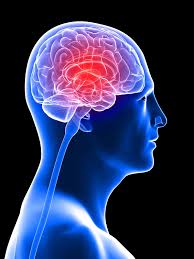To say that the human brain is incredibly complex and full of mystery is an understatement, but it’s also a challenge that medical researchers are rising to, especially when it comes to head trauma. In recent years, the effects of repeated concussions have made national headlines as researchers begin to shed light on the long-term problems that can develop on the heels of these events, with chronic traumatic encephalopathy (CTE) taking center stage.
At Emerald Neuro-Recover in Carmel, Indiana, Dr. John Humiston and our team specialize in the complexities of the human brain, handling everything from addiction to chronic brain conditions like CTE. If you’d like to better understand how CTE affects the brain, here’s what you should know.
What is Chronic Traumatic Encephalopathy (CTE)
 Chronic Traumatic Encephalopathy (CTE) is a brain disease commonly seen in athletes, military personnel, and individuals with brain trauma. While CTE isn’t new, it was finally recognized as a unique medical condition in the mid-2000s. An extensive project by the VA-BU-CLF Brain Bank that studied over 600 donated brains brought this to light. What they found is that patients with CTE had clumps of a protein called Tau. It slowly spread in the brain, killing brain cells. As the destruction and atrophy of the brain continued, sufferers lost critical communication between the brain’s cells. this led to:
Chronic Traumatic Encephalopathy (CTE) is a brain disease commonly seen in athletes, military personnel, and individuals with brain trauma. While CTE isn’t new, it was finally recognized as a unique medical condition in the mid-2000s. An extensive project by the VA-BU-CLF Brain Bank that studied over 600 donated brains brought this to light. What they found is that patients with CTE had clumps of a protein called Tau. It slowly spread in the brain, killing brain cells. As the destruction and atrophy of the brain continued, sufferers lost critical communication between the brain’s cells. this led to:
- Depression
- Loss of impulse control
- Cognitive impairment
- Trouble focusing
- Loss of memory
Many sufferers succumb to substance use disorders as a result, and even suicide, as the condition progresses. In truth, there’s no checklist of symptoms. CTE can affect different areas of the brain, the result is that no two people present the exact same side effects. For example, in addition to the common symptoms listed above, some people lose their sense of smell while others lose motor skills, including speech.
Who is at risk for CTE?
CTE is often associated with military veterans or athletes because of the prevalence of injuries to the head. CTE can also develop in anyone who’s sustained repeated trauma to the brain, from victims of abuse to those who may bang their heads because of a mental disorder.
Still, sports — such as football, hockey, and boxing — lead the charge when it comes to CTE. Earlier the traumas, the worse the outcomes. In fact, the Concussion Legacy Foundation reports several studies found that those who sustain brain trauma before the age of 12 fares worse than those who sustained them later in life.
This is not to say that everyone who suffers repeated blows to the head will develop CTE. The condition is quite rare — but these activities, combined with younger age, certainly put people more at risk. And the trauma doesn’t have to be concussive to lead to CTE. Any blow to the head can be problematic.
Dealing with CTE at our Outpatient Drug rehabs Carmel Indiana Centers
Unfortunately, there’s no single test that can confirm the presence of CTE, but we can use a number of diagnostic tools for testing. From neurological function tests to MRIs of your brain, we can narrow down the possibilities to help you better manage your symptoms. You can check out our addiction and brain healing services to see if we can help you.
Good management is the key for those who suffer from CTE. There’s no cure for the condition, but we can help minimize its impact on your life by finding ways to work around the byproducts of the disease, such as addiction and depression.
You can learn more about Emerald Neuro Recover and the different area we address. If you suspect you or a loved one is dealing with CTE, please give our drug rehabs Carmel Indiana behavioral health centers a call or use the online scheduling tool to set up a consultation.




